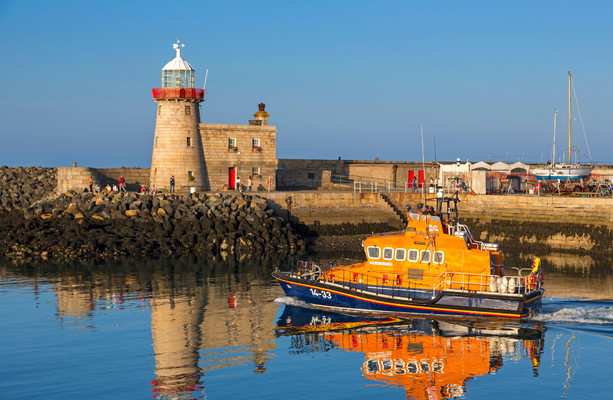nRNLI Crews Rescue Fishing Boat Off North Dublin Coast After It Ran Aground on Rocks
In a dramatic rescue operation, the RNLI crews successfully saved a fishing boat that had run aground on rocks off the north Dublin coast. The incident, which unfolded in challenging conditions, highlights the critical role of the RNLI in ensuring maritime safety.
The rescue mission began when the fishing boat encountered trouble adn became stranded on rocks.The RNLI crews, known for their swift and efficient response, were immediately dispatched to the scene. Their expertise and training were put to the test as they navigated the treacherous waters to reach the distressed vessel.
Once on-site, the RNLI teams worked tirelessly to secure the fishing boat and ensure the safety of its crew. The operation required precision and coordination, as the boat was in a precarious position on the rocks. Despite the difficult conditions,the RNLI crews managed to stabilize the situation and prevent further damage.
This incident serves as a reminder of the importance of the RNLI’s mission to save lives at sea. The association,which operates 238 lifeboat stations across the UK and Ireland,relies on the dedication of its volunteers to provide a 24-hour search and rescue service.
Below is a summary of the key details of the rescue operation:
| Key Details | Information |
|—————————|———————————————————————————|
| Location | North Dublin coast |
| Incident | Fishing boat ran aground on rocks |
| Rescue Team | RNLI crews |
| Outcome | Successful rescue, no injuries reported |
| RNLI Stations | 238 across the UK and Ireland |
The RNLI’s commitment to maritime safety is unwavering.Their ability to respond swiftly to emergencies, even in the most challenging conditions, underscores the vital role they play in protecting lives at sea.
For more information on the RNLI’s lifesaving work,visit their official website.
World-Today-News: An Interview with RNLI specialist, Captain Margaret O’Connor
world-Today-News Senior Editor (WTN): Thanks for joining us today, Captain O’Connor. your expertise in maritime safety and your experience as an RNLI crew member make you teh perfect guest to discuss this recent rescue off the north Dublin coast.
Captain Margaret O’Connor (CMO): Thank you for having me. it’s always a pleasure to discuss the vital work the RNLI does.
WTN: let’s dive right in. A fishing boat recently ran aground on rocks near the north Dublin coast. Can you walk us through how the RNLI responded to this incident?
CMO: Certainly. When a distress call comes in, our response is immediate. The team assembles, and we proceed to the scene. In this case, the challenging sea conditions meant our expertise and training were put to the test. We navigated through treacherous waters to reach the distressed vessel.
WTN: Once on-site, what actions did your team take to salvage the situation?
CMO: Upon arrival, our primary concern was securing the safety of the fishing boat’s crew. the boat was in a precarious position on the rocks, so precision and coordination were crucial. We worked tirelessly to stabilize the situation and prevent further damage.
WTN: Despite the difficulties, the rescue was successful with no reported injuries. How does the RNLI ensure such successful outcomes?
CMO: Our volunteers undergo rigorous training and drills to ensure they’re prepared for any situation they might encounter at sea. Additionally, our lifeboats are equipped with state-of-the-art technology, wich aid our crews in making informed decisions during rescues. That, coupled with our unwavering commitment to saving lives, contributes to successful outcomes like this one.
WTN: Speaking of commitment, the RNLI operates 238 lifeboat stations across the UK and Ireland. how does the institution maintain this extensive network?
CMO: The RNLI relies heavily on the dedication of our volunteers. they’re the lifeblood of our organization, giving their time and skills to provide a 24-hour search and rescue service. We also have a robust Funding team that ensures we have the resources to maintain and upgrade our stations and equipment.
WTN: As a final question, how can our readers support the RNLI’s critical work?
CMO: There are several ways people can support the RNLI. They can make a donation, become a regular giver, volunteer their time, or simply spread awareness about our work. Every contribution counts and goes a long way in helping us save lives at sea.
WTN: captain O’Connor, thank you for your insight and time. It’s been an enlightening conversation.
CMO: My pleasure.Thank you for your interest in the RNLI’s work and for keeping our vital role in maritime safety in the spotlight.
